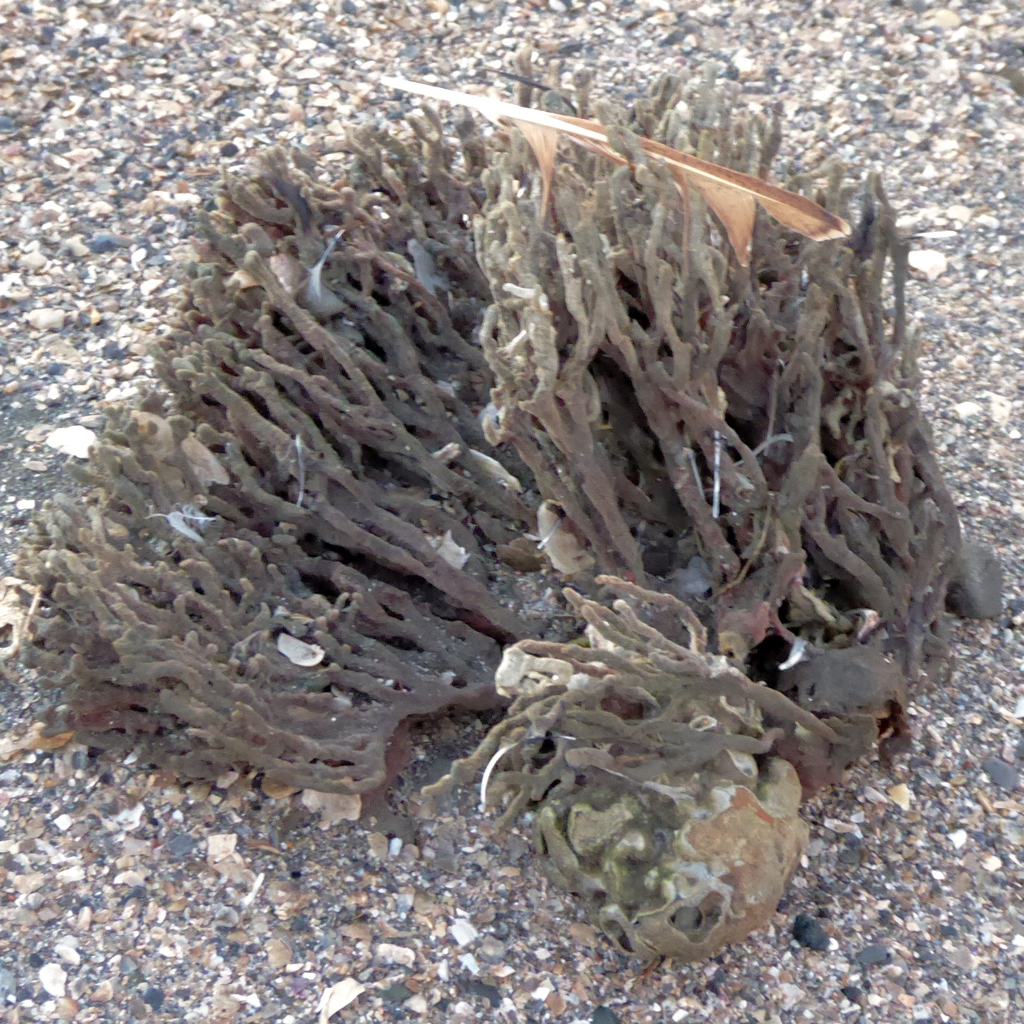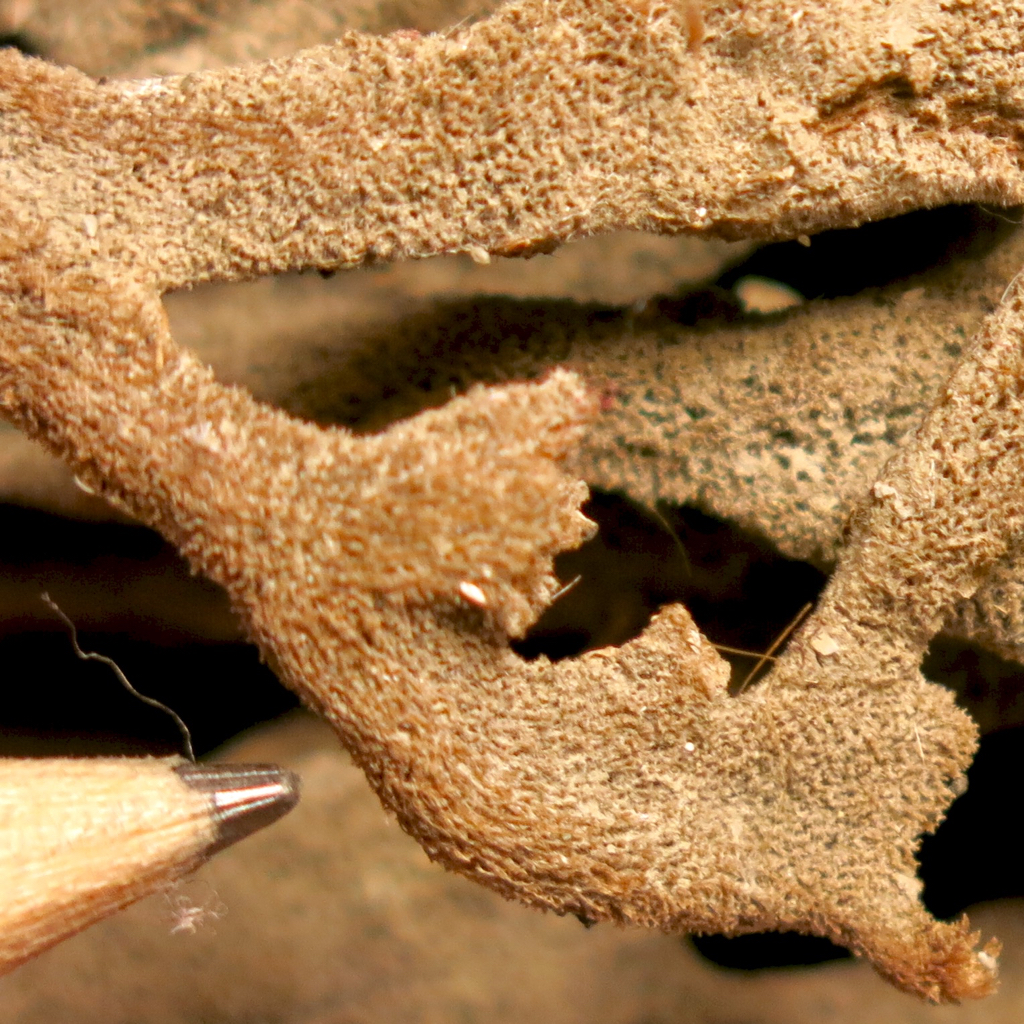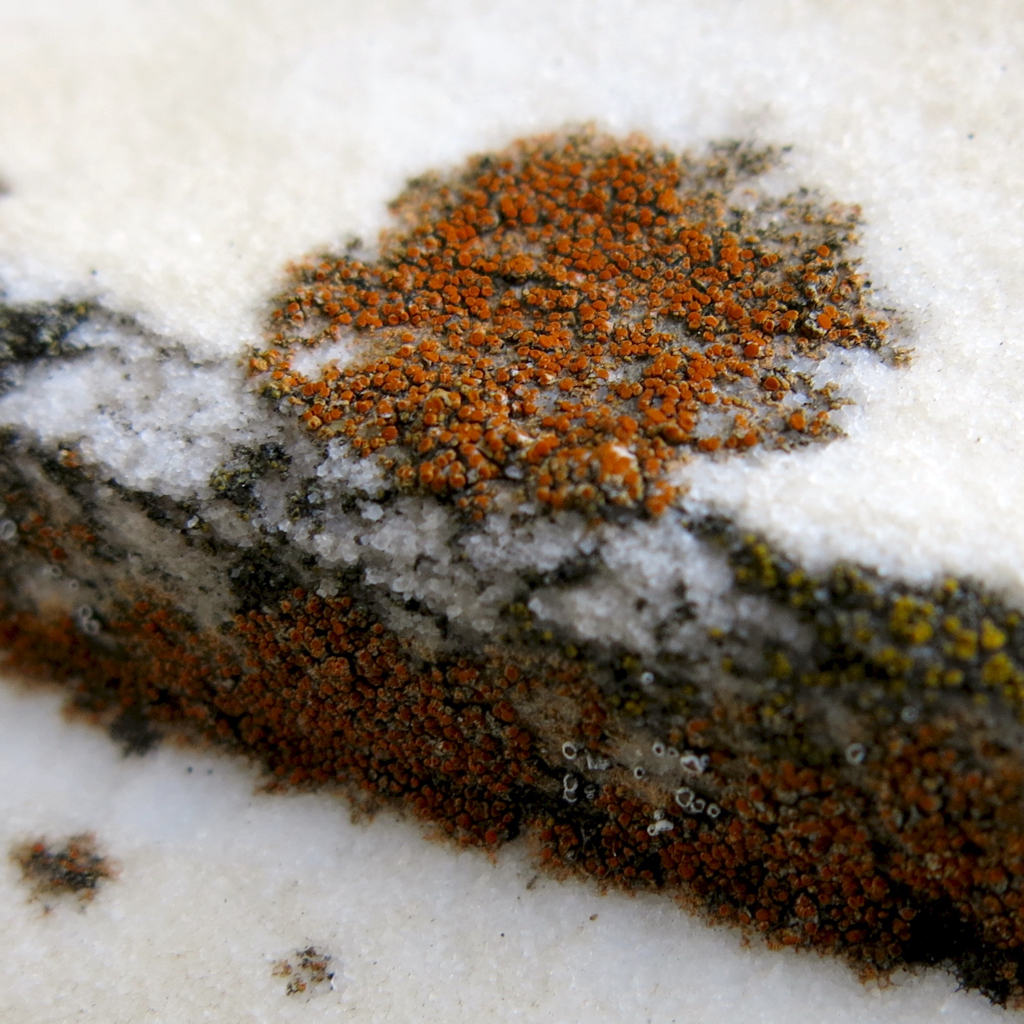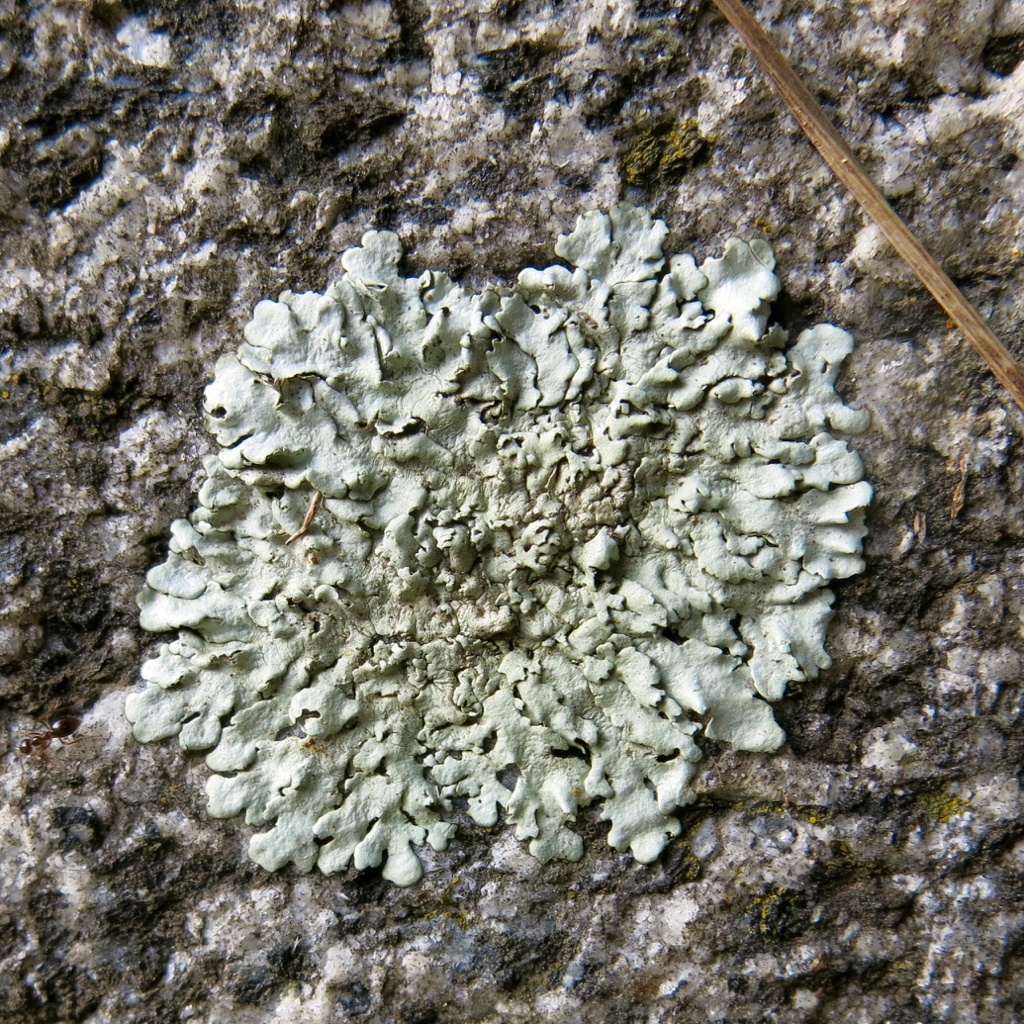We like to go to the Foster City Laundromat, and while the laundry is in the machines, we walk across the street, over the levee, and walk along the edge of San Francisco Bay. There’s a great view of the San Mateo bridge to the north, and the Hayward hills on the eastern side of the Bay, but I usually wind up looking at the mudflats, and the long ridge of piled-up seashells making a sort of beach along the edge of the mud.
Usually there are some dead Poriferans, or sponges, washed up on the seashells. These Poriferans are about four to six inches long, and have many branches. Most of them are a dull brown color, but in some of them you’ll see a tinge of reddish-orange in the inner branches — like the one in the photo below:
I believe these are Red Beard Sponges, Clathria prolifera, an invasive exotic from the North Atlantic that was first reported in San Francisco Bay in the 1940s, according to the Marine Science Institute in Redwood City. Red Beard Sponges are the only red sponges in our area with finger-like branches, and “when Clathria prolifera dries out … it generally turns brown,” according to Andrew N. Cohen (The Exotics Guide: Non-native Marine Species of the North American Pacific Coast. Center for Research on Aquatic Bioinvasions, Richmond, CA, and San Francisco Estuary Institute, Oakland, CA. Revised September 2011, online here).
Because these sponges are invasive exotics, and because the ones washed up on the shore are already dead, I felt it was fine to bring one sample home with me. There I was able to take a reasonably good close-up of the surface of the organism; the porous texture of the organism makes it obvious why this phylum of organisms is called Porifera.
I continue to be amazed at the wild diversity of life forms on this planet: Poriferans, animals which don’t have mouths and which remain rooted in place like plants for most of their lives — and Cnidarians like transparent Moon Jellyfish and bright blue Vellela vellela; arthropods from vicious predators like dragonflies to migratory pollinators like Monarch butterflies, crustaceans including large lobsters and tiny sand crabs — molluscs from Banana Slugs to octopuses, several different phyla of worms — and recently I’ve been reading about Bryozoans, or “moss animals,” colonial invertebrates which I’d never heard of before, yet which are apparently quite common and may be mistaken for seaweed.




